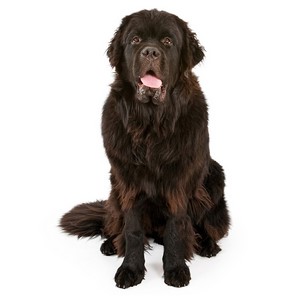Newfoundland Behaviour Traits
The Newfoundland is a Small to Medium Purebred pet dog that originates from the Southern group. Newfoundlands are characterised by the following behavioural qualities: Affectionate, Alert, Gentle, Lively. This dog prefers lounging around over exercise and play. Typically speaking, their behaviour is not good with children and they are not good at adjusting to new environments and places. Newfoundlands generally don't interact well with other dogs, however this can be worked with adequate training and socialisation from puppyhood. They are not the easiest dogs to train, and may be difficult for first time dog owners.









